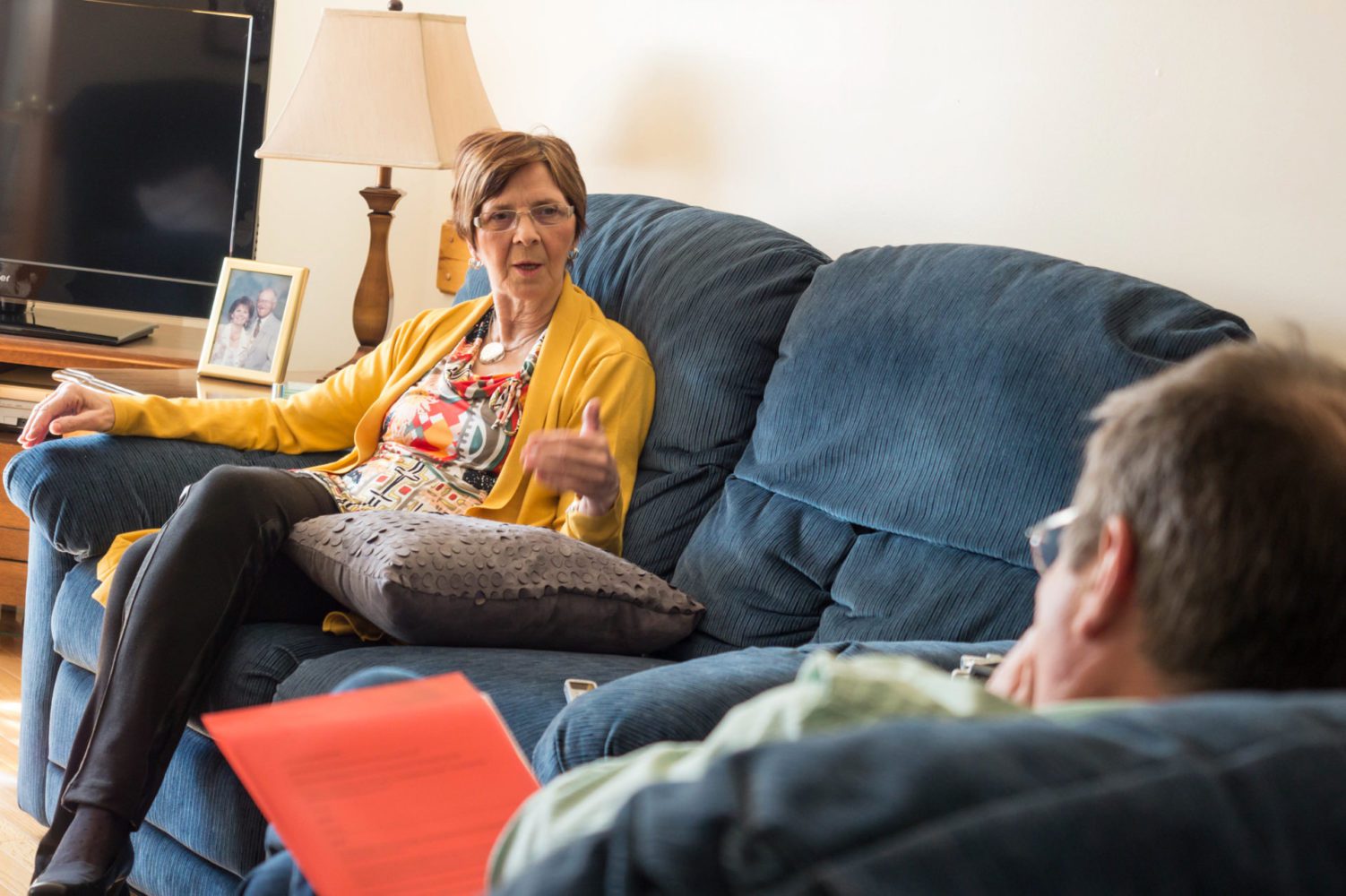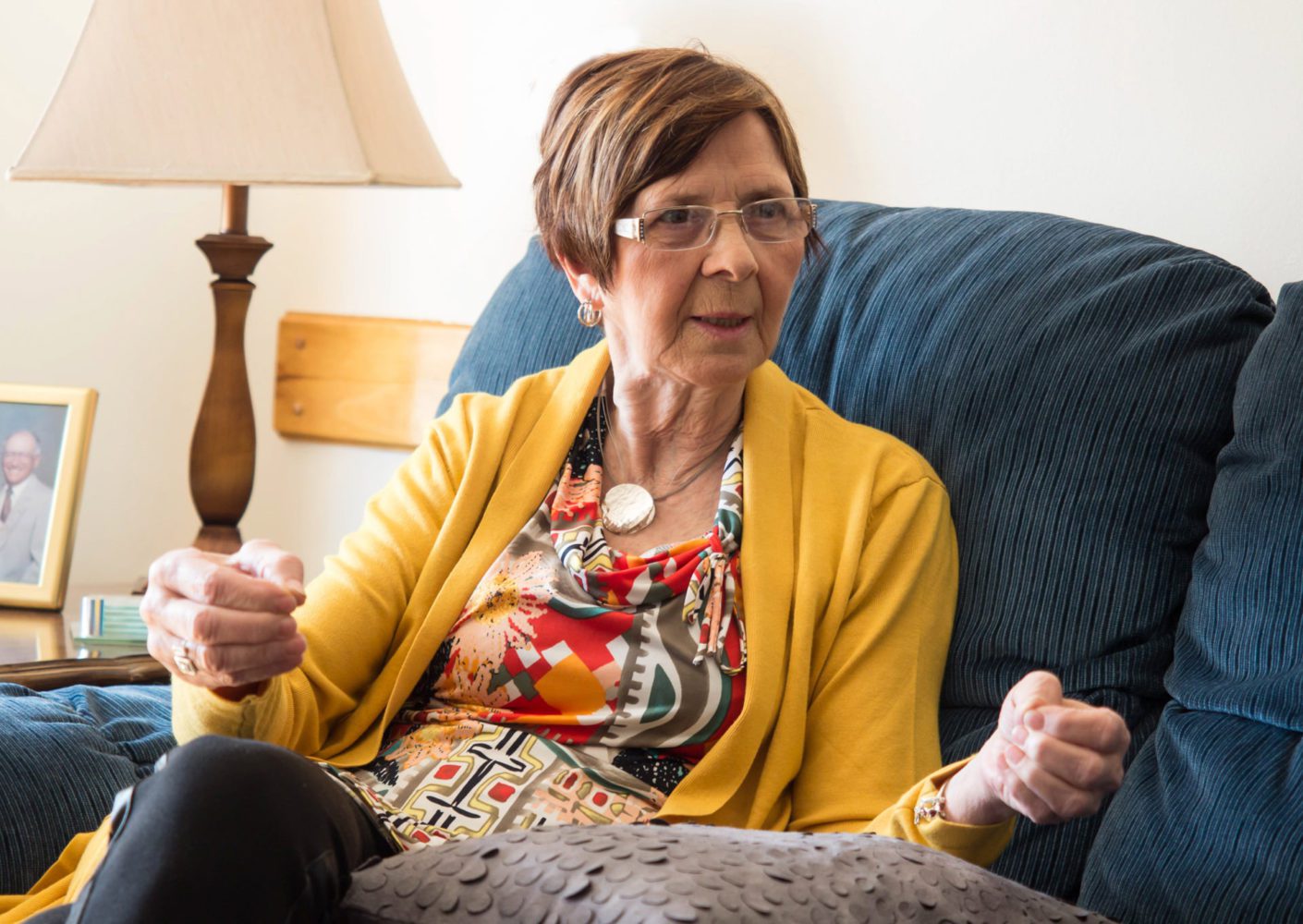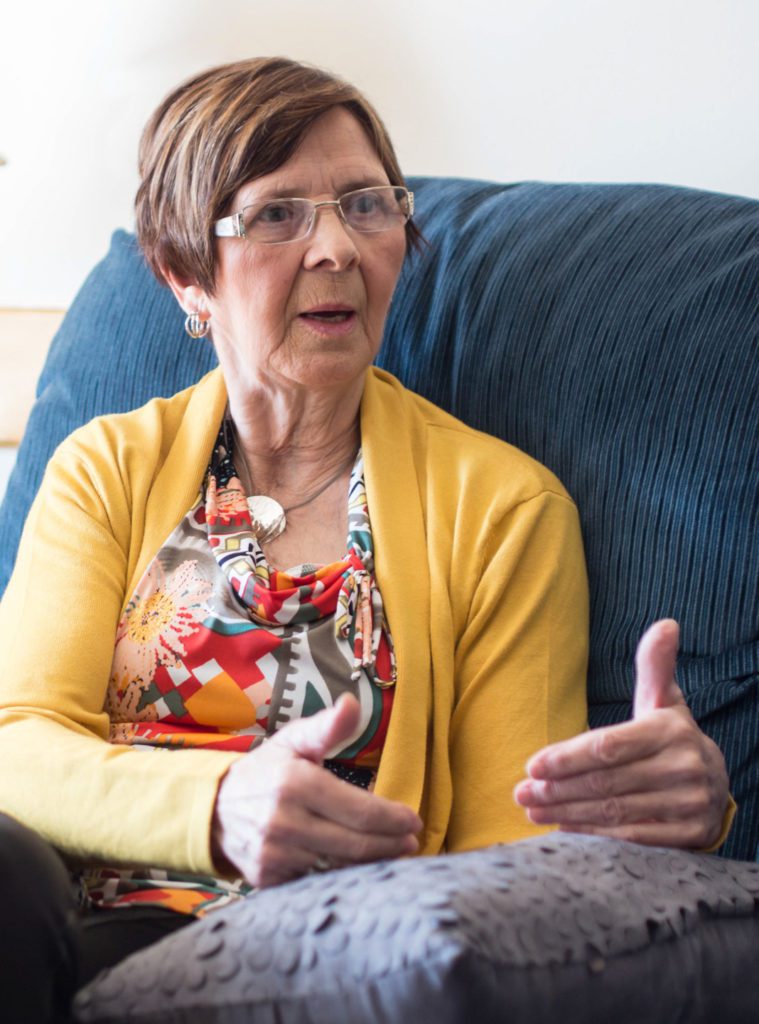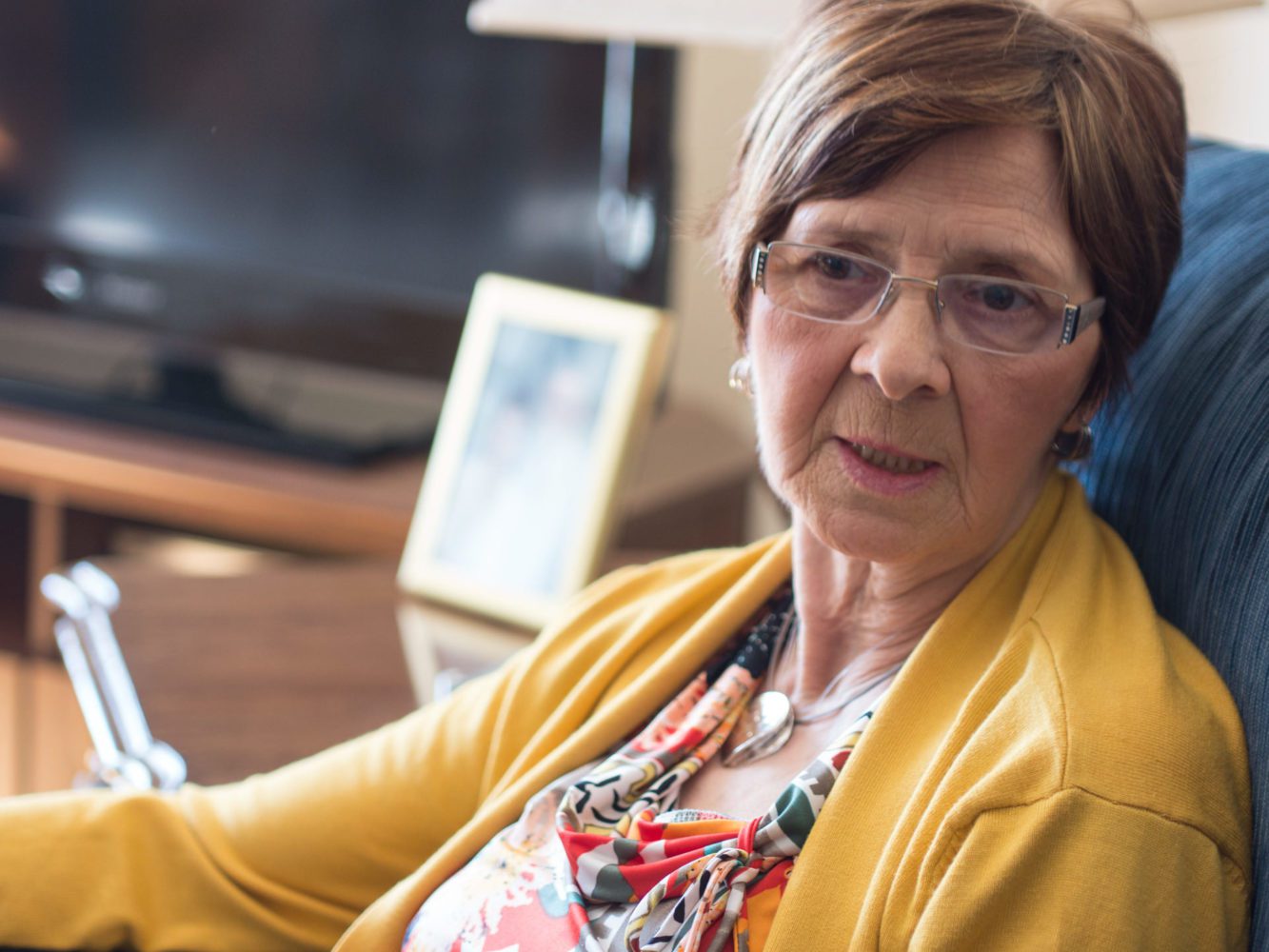Irene is a nurse’s assistant at a hospital in a small community in northern Ontario. For many years, she organized volunteers for the hospice program. The volunteers visit people who are dying in the hospital and in their homes –helping care for them and supporting their families. She spoke to Faces of Health Care about everything from bearing witness to long-repressed truths to safekeeping final letters.
“Most of our volunteers are women, but we do have some men. When a man is dying, it’s sometimes nice to have a man sit with him.”
“I had a gentleman volunteer with no nursing background who went with a patient to his home for one last weekend, before he went back to the hospital. The patient had an amputation of both legs and lived in a small town about an hour from here. The volunteer went home with him in an ambulance. He bathed him, put him on a bed pan, and changed his diaper. The patient’s doctor could not believe that the volunteer could do that with no nursing background. He had never changed a diaper besides his children!”
“The patient wanted one last weekend in his house, and the volunteer was able to do that for him. That was great.”

“People want to die at home. It’s the best place. They are surrounded by their loved ones, their smell, their stuff. But most families are burnt out. Sometimes mom or dad has been sick for a year, a year and a half, and the families are exhausted. And if patients get confused or agitated, that’s a real problem for the family.”
“We have volunteers that will sit with them for a few hours. That may be needed for a few days or a couple of weeks. With volunteers in the house, families can go do their groceries and have a coffee with a friend. That’s the only way they can cope.”
The extra help that volunteers provide can allow families to keep their loved ones at home for longer, and when possible, to die at home.
“Nobody wants their dad to die alone in his room at 2 o’clock in the morning. So if death is considered imminent, we have a volunteer sit with dad while the children sleep. That’s really important. They know someone is there if dad is agitated and tries to get up. They know that there is a volunteer sitting with him and touching him. If he is restless, somebody will make sure he is covered properly. A palliative volunteer program is a huge gift for a community, but many communities don’t have this.”

“You are a strong advocate for the Francophones in your community.”
“We often don’t do a good job with translation. It’s been a struggle with some hospital staff. They say that patients can get by.”
You don’t ‘get by’ in medicine. You need somebody to translate for you.
“We should also be putting up signs in the hospital in French and English and Ojibway (the language for First Nations people here).”
“I have a girlfriend whose husband got cancer. She could not understand the surgeon. Nobody went and translated for her. She didn’t even know at first that the cancer had spread past the bowel. Well, that’s not okay. The doctor should have seen that she didn’t understand him and arranged for a translator.”
“Lots of French-speaking families came from New Brunswick when the mill opened. A whole generation lost their language because there was no French school. The parents were scared the children wouldn’t learn English so they did not push for a French school. Now we have a French high school and primary school and lots of people take advantage of it. But I think we need to do more to embrace French at the hospital.”
“I had a grandmother who was dying and she went back to her original language. Her children couldn’t pray with their mom and couldn’t understand her. So I was the one praying with her in French.”
“I always tell the children to rub their dad’s hand. I tell them to shave him, because he may pass in three days and that will be an important memory for you. If you are not a touchy person with your dad, you can rub his feet, you can rub his hand, comb his hair, turn his pillow. Because those are the things, when he is gone, you are going to say, ‘Oh, I did that for dad. I washed his glasses.’ It’s a small detail but those are the memories you are going to cherish after your dad is gone. And the dying person loves it.”
 “Once a newborn died after a full pregnancy and I got too involved. It became my grief. I had known the mother since she was a kid. I ended up going to the family and I brought flowers and it became like my baby I had lost. I got the little boy a teddy and I went to the funeral. I had a silk blanket and somebody sewed the baby’s name on it, and I gave it to the mom.”
“Once a newborn died after a full pregnancy and I got too involved. It became my grief. I had known the mother since she was a kid. I ended up going to the family and I brought flowers and it became like my baby I had lost. I got the little boy a teddy and I went to the funeral. I had a silk blanket and somebody sewed the baby’s name on it, and I gave it to the mom.”
I learned from that that you have to get involved but you cannot grieve to the level of the patient.
“You have to be careful. You can feel grief, but you can’t live their grief. Usually I can do that. But with that baby, I crossed the line.”

“I tell the volunteers not to put on too much jewellery. If you are going to see a woman who only has six months to live, don’t go there all made up. It can make someone who has lost hair or is pale from sickness feel bad. It’s better to dress plainly. The client will feel more comfortable.”
Sometimes patients will tell things to a volunteer that they have never told to anyone else, not even their family. That they were abused as a child. It’s not something they want to share widely, but they need to tell someone before they die. We respect that confidentiality.
“We had a lady whose husband could not speak about her dying. He didn’t want to know about it; he couldn’t deal with it. She had three adult children. She put three boxes under her bed that contained their first blanket and their little pyjamas and she wrote a letter for each child. She hid the boxes under her bed. She shared that with the volunteers but she couldn’t share it with her husband. After she passed away, the children found those boxes.”
“Some people write a letter that the family doesn’t know about. I will often say, ‘If you cannot say something to your family because it’s too painful or you don’t have the strength, write it down. Have a volunteer write for you. They will seal it and give it to the person after you passed away. That’s probably a letter that’s going to be cherished by your loved one.’”


The comments section is closed.